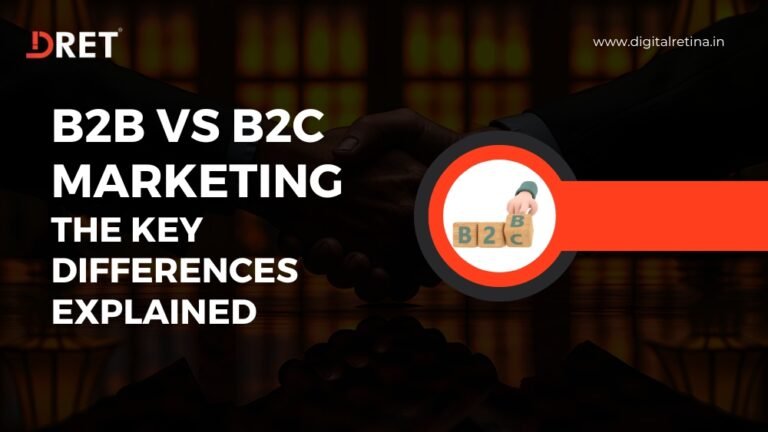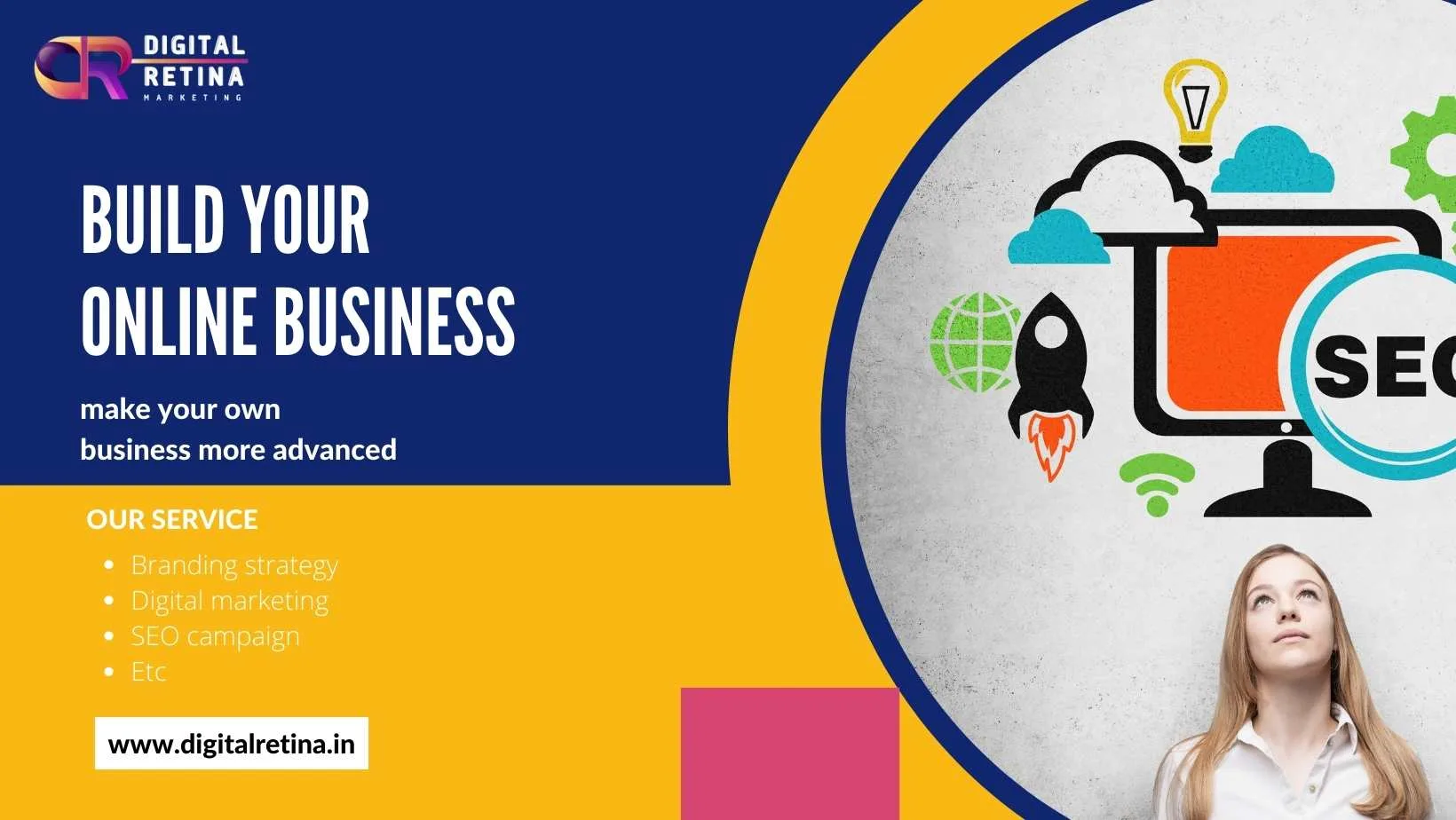
Difference Between B2b and B2c Marketing

Understanding B2B Marketing and B2C Marketing
In the diverse landscape of digital marketing, businesses often encounter two primary models: B2B (Business to Business) and B2C (Business to Consumer). Each model demands a distinct approach, strategies, and communication styles to effectively reach and engage their specific audiences. Understanding the differences between B2B and B2C marketing can significantly enhance a company’s marketing effectiveness and ability to connect with the right customers.
What is B2B Marketing?
B2B marketing involves promoting products or services to other businesses rather than individual consumers. It focuses on meeting the needs of other companies through strategic relationships, understanding complex buyer hierarchies, and catering to the specialized needs of professional purchasers who make decisions based on long-term value and return on investment. This form of marketing requires a deep understanding of the business customers’ operational needs and procurement processes.
Characteristics of B2B Marketing:
Complex Decision-Making Process: B2B marketing involves complex sales cycles with multiple decision-makers and influencers within each potential client organization. The purchase process is typically longer, requiring detailed nurturing and educational content.
Relationship-Driven: Successful B2B marketing relies heavily on building and maintaining strong, long-term relationships with clients. Trust and reliability are paramount, as each transaction usually involves significant investment and operational implications.
Niche Target Markets: B2B marketers often target highly specific segments of the market. This requires a deep understanding of the industry and the particular needs of business customers, which are often much more specialized than those in B2C scenarios.
Higher Value Transactions: The financial stakes are generally higher in B2B transactions. Deals often involve large quantities of products or high-value services, making the consequences of purchase decisions significant for both the buyer and the seller.
Educational and Content-Driven Marketing: B2B marketing strategies commonly employ educational materials, such as whitepapers, webinars, and case studies, that help build a case for the product or service by demonstrating value and ROI to potential buyers.
Emphasis on Brand Credibility: Credibility and authority are crucial in B2B markets. Companies invest significantly in establishing their expertise and reputation in the industry as a key differentiator.
Focused on Features and ROI: B2B marketing messages are typically detailed and feature-rich, emphasizing the product’s or service’s ability to improve efficiency, reduce costs, or increase profitability. The communication often revolves around the return on investment (ROI) for the buyer.
B2C Marketing
B2C marketing, short for business-to-consumer marketing, targets individual consumers with promotions of products and services, as opposed to targeting businesses. This form of marketing is characterized by quicker decision-making processes, emotional and impulse buying, and a broader target audience. B2C strategies focus on engaging customers through persuasive, appealing content and advertisements that highlight the personal benefits and satisfaction of a product or service. Common channels for B2C marketing include online platforms, television, radio, and print media, aiming to reach consumers in their daily lives and influence their purchasing decisions.
Characteristics of B2c Marketing:
Emotional Engagement: B2C marketing often leverages emotional appeals to connect with individual consumers, influencing their purchasing decisions by tapping into feelings and desires.
Wide Audience Reach: B2C campaigns typically target large, diverse consumer bases. The marketing efforts are designed to appeal to broad demographics, which requires understanding varied consumer preferences and behaviors.
Impulse Buying Promotion: B2C marketing strategies frequently aim to trigger impulse buys through attractive promotions, urgent calls-to-action, and engaging visual content that captures immediate interest.
Quick Decision Cycles: The purchasing process in B2C is generally swift. Consumers make quick decisions based on immediate needs or desires, unlike the prolonged deliberations common in B2B scenarios.
Extensive Use of Digital Channels: B2C marketing heavily utilizes online platforms such as social media, e-commerce websites, and email marketing to directly reach consumers in an engaging and interactive manner.
Customer Loyalty Programs: B2C marketers often implement loyalty programs and frequent shopper rewards to encourage repeat purchases and sustain a loyal customer base.
High-Volume, Low-Cost Transactions: Unlike B2B, B2C transactions typically involve less expensive products but a higher volume of sales, necessitating a focus on scalable and efficient marketing tactics.
Key Differences in Strategies Between B2B Marketing and B2C Marketing
Understanding the strategic differences between B2B (Business to Business) and B2C (Business to Consumer) marketing is essential for effectively targeting and engaging with each distinct audience. Here are the key differences in strategies for B2B and B2C marketing:
Target Audience:
B2B Marketing: Targets other businesses, often within specific industries or sectors. The focus is on the needs, interests, and challenges of entire organizations.
B2C Marketing: Targets individual consumers, appealing to a broader demographic spectrum. The strategies are designed to meet personal needs, desires, and lifestyle preferences.
Messaging and Content:
B2B Marketing: Content tends to be more informational and detailed, aimed at educating potential clients about the benefits and ROI of the product or service. The language used is more formal and industry-specific.
B2C Marketing: Messaging is more straightforward and emotionally engaging, designed to trigger quick decisions and impulse buys. The content is more likely to be entertaining and uses a casual tone.
Decision-Making Process:
B2B Marketing: Involves a longer decision-making process with multiple stakeholders. Strategies often include nurturing leads over a longer period through multiple touchpoints.
B2C Marketing: The decision-making process is much shorter, usually involving a single individual. Marketing strategies focus on creating immediate conversions and maximizing the number of transactions.
Sales Cycle and Relationship Focus:
B2B Marketing: The sales cycle is longer due to the complexity and higher cost of transactions. The relationship with customers is deep and ongoing, often involving account-based management.
B2C Marketing: Typically features a shorter sales cycle, and the customer relationship may be less personal but is scaled to reach many people. Loyalty programs may be used to enhance repeat business.
Channels and Tactics:
B2B Marketing: Utilizes channels like LinkedIn, industry-specific publications, and direct email campaigns. Common tactics include hosting webinars, publishing whitepapers, and attending trade shows.
B2C Marketing: Leverages broader platforms such as social media, online ads, email marketing, and influencer partnerships. Tactics are focused on maximizing reach and engagement, using viral marketing or flash sales.
Pricing and Value Proposition:
Pricing and Value Proposition:
B2B Marketing: Pricing strategies are often complex, with customized pricing models based on the client’s needs and the value offered. The value proposition is focused on business benefits like increasing efficiency, reducing cost, and enhancing productivity.
B2C Marketing: Pricing is typically fixed and clearly displayed. Promotions and discounts are frequently used to attract consumers. The value proposition is centered around personal benefits, convenience, and emotional satisfaction.
Customer Feedback and Adaptation:
B2B Marketing: Feedback mechanisms are often formal and structured, involving periodic reviews and consultations with clients to adapt products or services to better meet their needs.
B2C Marketing: Feedback is usually gathered through online reviews and social media, requiring brands to quickly adapt to consumer preferences and market trends.
Similarities Between B2B Marketing and B2C Marketing
Despite their differences, B2B and B2C marketing share several core principles and strategies. Understanding these similarities can help marketers streamline their efforts across both domains effectively:
Focus on Content Marketing:
Both B2B and B2C marketing strategies heavily rely on content marketing to engage audiences, build brand awareness, and provide value through informative and entertaining content. High-quality, relevant content helps both types of businesses establish credibility and capture the interest of their respective audiences.
Importance of Digital Presence:
In today’s digital age, maintaining a strong online presence is crucial for both B2B and B2C companies. This includes having a user-friendly website, active social media profiles, and a robust digital marketing strategy that leverages SEO and SEM to attract and convert leads.
Utilization of Social Media:
Social media platforms are integral tools for both B2B and B2C marketing. They provide a space for businesses to connect with their audience, promote products or services, and gather valuable customer insights.
Customer-Centric Approach:
Both marketing types prioritize understanding and addressing the needs of their customers. Whether it’s a business or an individual consumer, successful marketing strategies are developed around customer pain points, needs, preferences, and feedback to ensure relevance and effectiveness.
Data-Driven Decision Making:
Data analytics play a pivotal role in both B2B and B2C marketing. Marketers rely on data to track performance, understand consumer behavior, and make informed decisions that drive marketing efforts. This approach helps optimize strategies and increase ROI in both fields.
Brand Building and Loyalty:
Establishing a strong brand identity and fostering brand loyalty are essential components of both B2B and B2C marketing. While the techniques and messaging might differ, the goal of creating a loyal customer base that trusts and prefers the brand over competitors remains the same.
Adaptability and Innovation:
Markets are continually changing, driven by technological advancements and evolving consumer expectations. Both B2B and B2C marketing must remain flexible and innovative to adapt to these changes, ensuring they remain competitive and relevant.
Challenges and Solutions in Marketing
In the ever-evolving landscape of marketing, both B2B and B2C sectors face unique challenges. Understanding these hurdles and identifying effective solutions is crucial for marketers to adapt and thrive. Here’s a breakdown of common challenges along with strategic solutions to overcome them:
1. Increasing Competition
Challenge: Both markets have seen a significant rise in competition due to globalization and digital advancements. Businesses must stand out in a saturated market where consumers and businesses have numerous options.
Solution: Differentiation through branding is key. Develop a unique selling proposition (USP) that clearly sets your product or service apart from the competition. Invest in building a strong brand identity and voice that resonate with your target audience.
2. Changing Consumer Behavior
Challenge: Rapid changes in consumer expectations and behavior can be difficult to keep up with. The digital age has led to consumers expecting more personalized and immediate responses.
Solution: Utilize data analytics to understand and predict consumer behavior patterns. Implement marketing automation tools to deliver personalized content and responses promptly. Engage with your audience regularly to stay connected and relevant.
3. Technology Adaptation
Challenge: Keeping up with technological advancements is a necessity that can be resource-intensive. For many businesses, particularly small ones, the rapid pace of tech development presents a barrier to entry.
Solution: Focus on scalable technologies that grow with your business. Cloud-based solutions can be a cost-effective way to implement advanced technology. Additionally, consider partnerships with tech firms to leverage their expertise without bearing full costs.
4. Generating Quality Leads
Challenge: Both B2B and B2C markets struggle with not just generating any leads, but generating high-quality leads that are likely to convert into sales.
Solution: Enhance your lead generation strategy with a combination of inbound and outbound marketing techniques. Content marketing, SEO, and social media can attract high-quality inbound leads, while targeted ads and email marketing campaigns can help in capturing leads actively looking for solutions.
5. Maintaining Customer Loyalty
Challenge: In a world where switching brands is often as easy as a few clicks, fostering customer loyalty can be challenging.
Solution: Create a loyalty program that rewards repeat customers and provides them with continuous value. Focus on excellent customer service — a direct, personal response to customer issues can transform a potentially negative experience into a loyal customer relationship.
6. Measuring ROI
Challenge: Determining the return on investment (ROI) from marketing campaigns can be complex, especially with multiple channels and touchpoints.
Solution: Implement robust analytics tools to track and measure the effectiveness of different marketing channels and strategies. Define clear KPIs (Key Performance Indicators) before launching campaigns to ensure that you can measure what success looks like.
7. Regulatory Compliance
Challenge: With increasing concerns about data privacy, both B2B and B2C marketers must navigate a complex landscape of legal requirements.
Solution: Stay updated on the latest regulations such as GDPR, CCPA, and others that affect marketing activities. Implement compliance measures as part of your strategy from the outset to avoid costly fines and damage to your brand reputation.
Conclusion
Both B2B and B2C marketing require distinct approaches due to their differing target audiences, sales cycles, and decision-making processes. B2B marketers must focus on relationship building and detailed content, while B2C marketers should aim to connect emotionally and quickly with consumers. By understanding these differences, marketers can more effectively target their messages and strategies to meet the unique needs of their business customers or direct consumers.
For businesses looking to sharpen their marketing strategies, whether in B2B or B2C contexts, recognizing these distinctions is the first step toward crafting campaigns that resonate well with the intended audience and drive successful outcomes.
If you’re seeking to elevate your marketing efforts and achieve remarkable results, reach out to our SEO Company in Noida. We not only understand these crucial distinctions but also specialize in crafting tailored content that can transform your marketing strategies. Contact us today to learn how we can assist you in achieving your marketing objectives.
digitalretina

Jayant Singh
Meet Jayant Singh, the visionary CEO of Digital Retina. With over 8 years of expertise in digital marketing and brand growth strategies, Jayant's leadership has led to the successful transformation of numerous businesses. His knack for innovative solutions continues to shape the digital marketing landscape.


Comprehensive Guide to PPC Strategies: How to Make the Most of Your Paid Advertising

